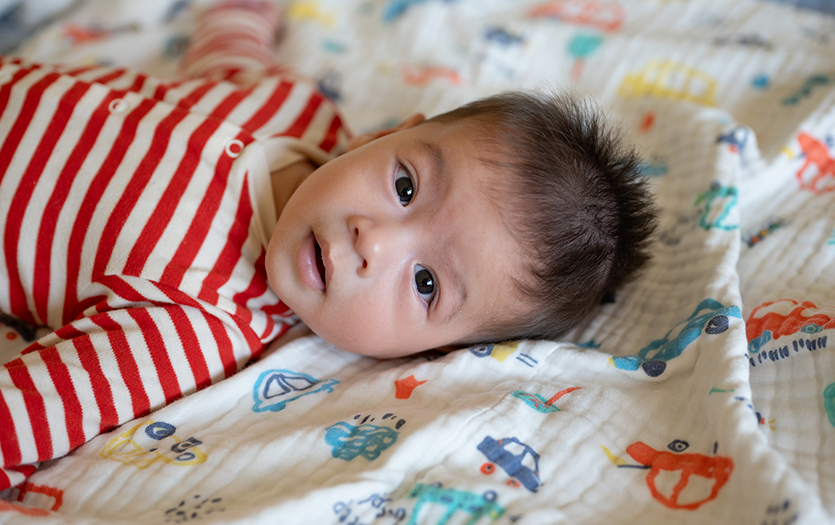
This post was written by Miry Makebish, MD, PPG – Pediatrics.
Most caregivers can empathize with the challenges of getting a baby to rest at night. As a parent, these times can be overwhelming and feel like an uphill battle. Because of this, some turn to sound machines for help. But recent attention on social media is drawing questions about the safety of these devices and risks of long-term usage. Will it result in a dependency? Is it safe for the developing auditory system?
How they work
Sound machines generate white noise, a consistent hum composed of multiple frequencies across the audible spectrum. This creates a dampening effect on surrounding noises, aiding in minimizing distractions and mitigating the impact of sudden or startling sounds. While many parents have found white noise machines to be beneficial in promoting better sleep for their babies, it’s essential to recognize that this solution may not suit every infant. Some may find the noise overstimulating and others may not be responsive to it at all.
Benefits
Despite these considerations, understanding the advantages and safe usage of noise machines can provide valuable insights for parents seeking to improve their babies sleep hygiene. The American Academy of Pediatrics (AAP) referencing several studies, supports the potential aid that white noise exposure can have on helping infants fall asleep and decrease crying.
Additional benefits include:
- Enhanced sleep quality
- Reduced disturbances
- Established sleep associations
- Soothing effects that mimic the womb
- Improved naptime schedules
- Reduced startle reflex
- Machines are portable and easily accessible throughout the home
Like all sleep practices for babies, safety is the top priority. Responsible use of white noise machines is critical in ensuring a secure resting environment. Be mindful of volume levels, location and distance from the infant, and frequency of use.
Volume levels
Setting the volume of a white noise machine at a level that is gentle and consistent, and avoiding excessively loud or abrupt sounds will best protect the baby’s immature auditory system. The AAP recommends that sound levels in a baby’s environment should be kept below 50 decibels (dB) during sleep to promote healthy auditory development and minimize the risk of hearing damage. For perspective, a typical conversation is around 60 dB, a quiet office is around 50 dB, and a whisper is around 30 dB. Parents may utilize smartphone apps or sound level meters to monitor sound levels in their baby’s sleep environment.
Creating distance
Placing a white noise machine far enough from the baby will help prevent over exposure to sound. Start off as far as the other side of the room they are sleeping in. Monitor their responses and adjust the machine’s settings based on their reactions.
Minimizing dependency
In order to prevent your baby from forming a dependency on the device, take breaks with no exposure to white noise and consider only using as needed. During those intervals explore alternative strategies to ease your baby into sleep. These articles from the Parkview Dashboard might help, as you consider different techniques:
Forming a healthy sleep routine for your baby
Safe sleep for you and your baby
Safe sleep recommendations for grandparents
Other considerations
When selecting a white noise machine, it is wise to consider specific needs and compare safety features. Prioritize safety features such as secure power cords, sound options, volume control and portability. Each parent must weigh the benefits and risks of using a white noise machine for their baby. If used responsibly and thoughtfully, these devices can be a helpful tool for enhancing sleep quality and creating a soothing environment.
If you have questions about whether white noise is a good option for your little one, talk to your primary care provider or pediatrician. If you need help setting up an appointment or establishing care, our Access Center can help! Call any time, at 877-PPG-TODAY or 877-774-8632 for assistance.



